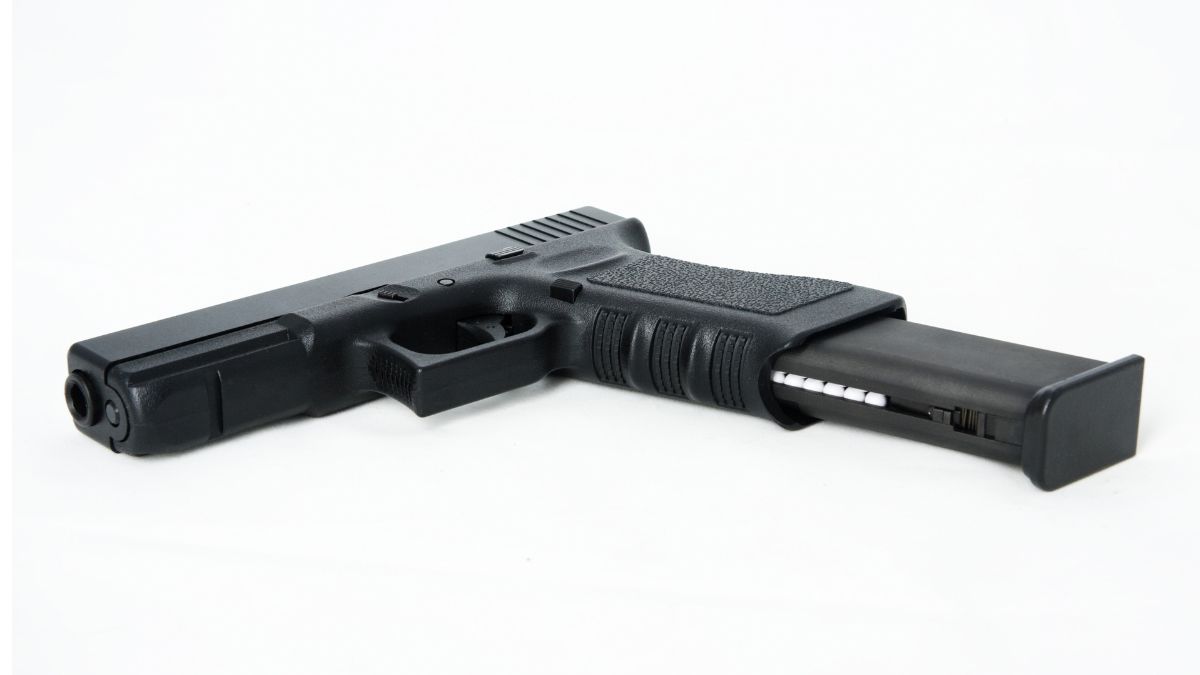Firearms Commission Meets for Third Time to Increase Awareness and Implementation of Firearm Restraining Orders

![]()
Firearms Commission Meets for Third Time to Increase Awareness and Implementation of Firearm Restraining Orders (Chicago, IL) — The Illinois State Police (ISP) convened the third meeting of the Commission on Implementing the Firearms Restraining Order Act (Commission) on Friday. The Commission was created to advise on strategies for implementing the use of Firearm Restraining Orders (FRO).
“The Firearms Restraining Order is another mechanism to keep firearms out of the hands of those who pose a significant threat to themselves or to others,” said ISP Director Brendan F. Kelly. “However, if people don’t know about this mechanism or how it works, it’s not an effective. ISP and the Commission are committed to raising awareness about the Firearms Restraining Order, not only among law enforcement, but among the public, and identifying strategies that allow for its successful implementation.”
During today’s meeting, Commission member Kimberly Wyatt, Senior Deputy Prosecuting Attorney in the King County Prosecuting Attorney’s Office, in Seattle Washington, presented to the Commission on the practices, policies, and training that its office has advanced to promote use of extreme risk orders of protection in their community. This included looking at an after-hours policy, training various partners beyond law enforcement such as designated crisis responders and faith communities, standing orders, identifying relevant case law, and data collection.
During the Commission meeting, Director Kelly provided an overview of Illinois’ Firearm Owners Identification (FOID) System, including prohibitors, revocations, Clear and Present Danger reporting, and Illinois’ Firearms Restraining Order Act.
Since the Firearms Restraining Order Act became effective January 1, 2019, a total of 228 Firearms Restraining Orders have been entered into the Law Enforcement Agency Data System (LEADS) as of August 3, 2022.
Director Kelly also covered the emergency amendment to the Firearm Owner’s Identification Card Act filed on July 15, 2022 that allows for implementation of broader use of clear and present danger reports that can bar applicants from receiving a FOID card or revoke a current FOID card. The rule change allows for the use and maintenance of historic Clear and Present Danger information even if the subject was not actively seeking or holding a FOID card at the time a Clear and Present Danger report was made and allows for use of these reports in possible future evaluations.
FIREARMS COMMISSION/ PAGE 2
| YEAR | 2017 | 2018 | 2019 | 2020 | 2021 | 2022 |
| FOID Application Denials for Clear and Present Danger | 11 | 9 | 23 | 38 | 52 | 29 |
| Total Application Denials (Any Type of Denial) | 10,315 | 10,691 | 9,768 | 12,135 | 24,117 | 7,841 |
| FOID Revocation for Clear and Present Danger | 138 | 236 | 492 | 430 | 465 | 378 |
| Total Revocations (Any Type of Revocation) | 10,020 | 10,818 | 10,972 | 12,109 | 18,377 | 6,497 |
| Clear and Present Danger Percent of Total Revocations | 6.08% | 6.52% | 10.10% | 9.68% | 8.29% | 16.55% |
| Clear and Present Danger Percent of Total Denials | 1.41% | 1.92% | 3.03% | 6.79% | 4.02% | 6.99% |
| Percent of FOID revoked after Clear and Present Danger Report | 43% | 41% | 59% | 68% | 71% | 77% |
In an ongoing effort to protect the public’s safety, ISP has been working with the Illinois State Board of Education and last month hosted two webinars for schools about Clear and Present Danger reporting. ISP also convened two statewide calls with law enforcement and discussed the use of Firearms Restraining Orders, Extreme Risk Protection Orders, and Clear and Present Danger FOID revocations. During these calls, ISP also covered the law enforcement portal and reviewed various resources available to law enforcement such as eTrace, which can assist officers in tracing firearms, as well as information submitted to the National Integrated Ballistics Information Network. Additionally, ISP encouraged law enforcement to reach out to ISP for Rapid Deployment training so that law enforcement can respond cohesively in the face of intense danger such as active shooter situations.
The Commission is developing a policy that will serve as the overall framework for timely relinquishment of firearms whenever a firearms restraining order is issued. The Commission is consulting with counties and other states with extreme risk protection order laws that have been successful implementing such laws. Once the policy is approved, ISP will work with local law enforcement agencies to design a comprehensive strategy using the model policy.
The Commission, chaired by ISP Director Brendan F. Kelly, includes State’s Attorneys, chiefs of police, a sheriff, circuit court judge, representatives of the Illinois Attorney General’s Office, public defender, the Illinois Department of Public Health, and the Illinois Law Enforcement Training and Standards Board.
The model policy is scheduled to be finalized by October 2022.
Firearms Commission Meets for Third Time to Increase Awareness and Implementation of Firearm Restraining Orders








Responses